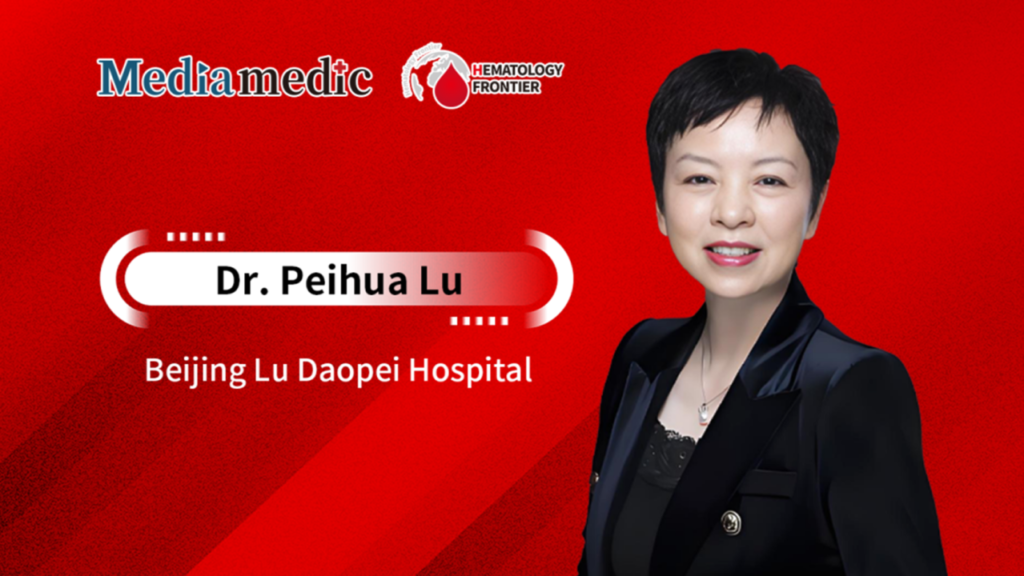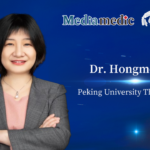
The 12th Annual Meeting of the Society of Hematologic Oncology (SOHO 2024) took place in Houston, USA, from September 4 to 7, 2024. It brought together leading experts in hematologic oncology from around the world to discuss the latest research findings and explore new treatment strategies. Among the numerous topics discussed, the treatment of T-cell acute lymphoblastic leukemia (T-ALL) and lymphoblastic lymphoma (T-LBL) was a focal point due to the high relapse rate and treatment complexity associated with these diseases. Traditional treatments often fail to provide long-term remission, and CAR-T cell therapy faces the challenge of inadvertently targeting healthy T-cells, further complicating treatment.During this meeting, a breakthrough study by Dr. Peihua Lu and her team from the Beijing Lu Daopei Hospital garnered significant attention. Their research on CD7 CAR-T cell therapy has shown outstanding efficacy and controllable safety in clinical trials, offering new hope for patients. In an exclusive interview with Hematology Frontier, Professor Lu provides an in-depth analysis of the research and its far-reaching significance, highlighting the influence of Chinese scholars on the international stage and their contribution to advancing hematologic oncology treatment worldwide.
Hematology Frontier: Your team’s Phase I/II clinical trial on CD7 CAR-T therapy for relapsed/refractory (R/R) T-ALL/LBL was selected for presentation at this year’s SOHO conference. Could you share more details about this research?
Dr. Peihua Lu: I had the privilege of presenting our latest findings on CD7 CAR-T therapy at SOHO this year, a conference renowned for its influence in the field of hematologic malignancies. My team’s research focused on exploring the use of CD7 CAR-T therapy in R/R T-ALL/LBL patients.
In recent years, cell therapies, particularly CAR-T, have made significant strides in treating B-cell malignancies, with several products already commercialized. However, CAR-T therapy targeting T-cell malignancies is still in its early stages. Many patients urgently need new treatment options to improve survival rates, and we have been dedicated to advancing clinical research in this area.
We developed a CD7 CAR-T cell product, termed “Naturally Selected CD7 CAR-T” (NS7CAR-T), which is generated by transducing peripheral T cells with a lentivirus. This therapy has successfully completed Phase I/II clinical trials with promising efficacy. One of the key challenges in CAR-T therapy for T-cell malignancies is avoiding the fratricide effect, where T cells target each other due to shared antigens with the malignant cells. The advantage of our NS7CAR-T product is that it does not require additional CD7 gene editing or blocking protein expression, largely mitigating this issue.
We applied this technology in clinical trials to assess its efficacy in patients. Two years ago, we published results from a Phase I clinical trial involving 20 R/R T-ALL/LBL patients in the prestigious journal Blood, which showed encouraging results. Of course, 20 patients are not enough to draw final conclusions, so we extended the study, incorporating more patients. Last year, we published data on 60 patients in American Journal of Hematology, making it the largest trial to date on CD7 CAR-T therapy for T-ALL/LBL. These patients had previously undergone multiple failed treatments, including allogeneic hematopoietic stem cell transplantation (allo-HSCT), but unfortunately relapsed. For these patients, treatment options are severely limited without effective CAR-T therapy.
The 60 patients (35 with T-ALL and 25 with T-LBL) received different doses of NS7CAR-T cells: low (5×10^5/kg), medium (1-1.5×10^6/kg), and high (2×10^6/kg). On day 28, over 94% of patients achieved minimal residual disease (MRD)-negative complete remission (CR) in both bone marrow and peripheral blood. This result is incredibly encouraging. Additionally, 32 patients (53.3%) presented with extramedullary disease (EMD), and they too responded well to treatment, with an overall response rate of 78% and a CR rate of 56%. These initial results are promising, and our next goal is to explore ways to sustain these outcomes.
Hematology Frontier: Your study compared the efficacy of allo-HSCT in R/R T-ALL/LBL patients who achieved CR with CD7 CAR-T therapy to those who achieved CR after chemotherapy. Could you elaborate on the differences in efficacy between these two groups?
Dr. Peihua Lu: For patients achieving CR with CD7 CAR-T therapy, our goal is not just to achieve early remission but also to secure long-term cures. In this context, allo-HSCT is a critical step in the treatment sequence. While patients can achieve CR with CD7 CAR-T therapy, maintaining long-term remission without allo-HSCT can be challenging, and the likelihood of a cure decreases without it.
To further evaluate the efficacy, we conducted a comparative study. We examined the outcomes of patients who achieved CR1 or CR2 through chemotherapy (chemo-sensitive T-ALL/LBL) and those who achieved CR through CD7 CAR-T therapy (chemo-refractory R/R T-ALL/LBL) and subsequently received allo-HSCT. The chemotherapy group included 124 patients, while the CD7 CAR-T group comprised 34 patients, some of whom had relapsed despite previous allo-HSCT.
After a two-year follow-up, we found that both groups had similar overall survival (OS) and leukemia-free survival (LFS) rates. Additionally, there was no significant difference in post-transplant complication rates or non-relapse mortality (NRM) between the two groups. These results provide strong confidence that even for patients with refractory disease, long-term survival and potential cure are achievable through CD7 CAR-T therapy followed by allo-HSCT.
In summary, the combination of CD7 CAR-T therapy and allo-HSCT offers an effective treatment strategy for R/R T-ALL/LBL patients, with outcomes comparable to those who achieve CR through chemotherapy and undergo allo-HSCT.
Hematology Frontier: Your study showed promising efficacy and safety data for CD7 CAR-T therapy in treating R/R T-ALL/LBL. Could you elaborate on the significance of this therapy for clinical practice?
Dr. Peihua Lu: Our findings demonstrate that CD7 CAR-T therapy offers significant efficacy and manageable safety in treating R/R T-ALL/LBL, which is highly significant for clinical practice.
In this study of 60 patients, 48 (80.0%) experienced mild cytokine release syndrome (CRS), with 42 patients (70.0%) having grade 1 CRS and six patients (10.0%) having grade 2 CRS. Six patients (10%) experienced grade 3 CRS, and only one patient (1.7%) had grade 4 CRS. These results indicate that the safety profile of CD7 CAR-T therapy is controllable. The combination of high efficacy and good safety outcomes is highly encouraging for clinicians.
The significance of this therapy lies in offering new hope to a patient population with previously limited treatment options. Before CD7 CAR-T therapy, these patients had few viable options and little hope for survival. Now, not only can CD7 CAR-T therapy help them achieve CR, but it may also lead to potential cures. This is a game-changer for patients and their families.
We hope that CD7 CAR-T therapy will become more widely available in the future, with larger-scale clinical trials underway. Our ultimate goal is commercialization, so more patients can benefit, and long-term disease control and even cure can be achieved. This breakthrough opens up new treatment avenues for patients and could propel significant advancements in the field of hematologic oncology.
References
- Naturally selected CD7 CAR-T therapy without genetic manipulations for T-ALL/LBL: first-in-human phase 1 clinical trial. Blood. 2022 Jul 28;140(4):321-334. doi: 10.1182/blood.2021014498.
- Analysis of 60 patients with relapsed or refractory T-cell acute lymphoblastic leukemia and T-cell lymphoblastic lymphoma treated with CD7-targeted chimeric antigen receptor-T cell therapy. Am J Hematol. 2023 Dec;98(12):1898-1908. doi: 10.1002/ajh.27094.
Dr. Peihua Lu
Medical Executive President of Lu Daopei Hospital and Lu Daopei Institute of Hematology.
Dr. Peihua Lu graduated from Peking University Medical School and completed her residency at the University of Nebraska Medical Center. She later specialized in hematology and oncology at Stanford University. She is a certified hematologist and oncologist in the United States and holds medical licenses in both China and the United States.
Her roles include:
Recipient of the Medical Management Award, Taishan Healthcare Value Award, 2021
Executive Committee Member, Cancer Research Center, Capital Medical University
Executive Director, Blood Disease Committee, China Non-Governmental Medical Institutions Association
Member, Hematopoietic Stem Cell Donor Registry of China
Executive Committee Member, Leukemia Alliance, Chinese Society of Clinical Oncology (CSCO)


